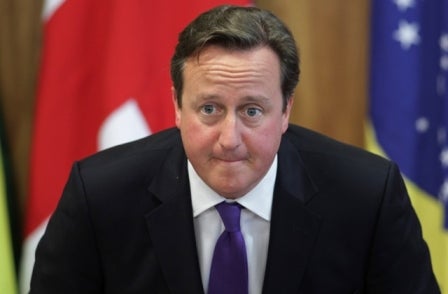
Hacked Off’s cross-party deal of Sunday night/Monday morning could have the worst possible consequence for all concerned.
It could leave large sections of British journalism without a regulator at all.
Some may see this as a good thing. But ultimately we all benefit (readers and journalists) from having an independent ombudsman lying somewhere between the courts and the angry phone-call/email.
It provides an arms-length solution for resolving vexatious complaints and a measure of quick justice for those who have a genuine gripe.
Ordinary people who have been badly treated by a publisher should have access to the "fast, free and fair" redress which the PCC promises. While it failed catastrophically to tackle phone-hacking, the PCC was and is very good at dealing with every-day complaints.
Even the harshest critics of the old regime would have to agree that the new contract-based system looked set to be a vast improvement on what had gone before.
Hunt assured journalists that the board of the regulator would be genuinely independent, following the Leveson recommendations exactly in this regard. That, together with investigative powers and the right to levy fines of up to £1m in extreme circumstances, tackled the main criticisms of the old PCC.
But the final press regulation deal negotiated by Hacked Off has gone further:
- Owners now have no representative on the Recognition Panel which would licence the new regulator so are left wondering they should fund and organise what they see as a quango which they will have no control over
- Editors would be in the minority on an Editors’ Code Committee which would comprise equal numbers of journalists, editors and lay people. The Editors' Code came in for almost no criticism throughout the Leveson Inquiry, so there is a strong argument for saying 'if it ain't broke'
- The regulator would have the power to compel publication of corrections, on the front-page if necessary
- And it is backed up by legislation which makes the whole thing feel like a move towards state-licensing of the press.
At a stroke Hacked Off has somehow made it a badge of honour for publishers to stand up and say ‘I will not be regulated’. It’s quite an achievement considering the fact that hacking and bribes arrests are continuing apace and just last week The Sun paid out “very substantial damages” after admitting accessing private information on an MP’s lost mobile phone.
The press is such a disparate industry that there is a big chance that the consensus for change built up in the wake of the hacking scandal could dissolve.
The idea of a rigidly-prescribed state-imposed press regulation solution is one that rightly grates with a British press culture which is proudly independent, trouble-making and at times anarchic.
The industry should now move ahead with the creation of its own regulator which strives to tackle the shortcomings which caused the hacking scandal by being genuinely compliant with the Leveson principles (as promised).
It should seek to find the consensus Miliband and co abandoned by opening up dialogue with the ‘victims’ of press intrusion and showing them that their concerns are being tackled. And publishers should finally show they are above the shabby backroom deal with Hacked Off that so incensed them by doing all this in a far more open fashion than they have thus far.
If the new regulator is genuinely compliant with the Leveson principles, but does not tick every box on the Royal Charter checklist., then perhaps the Royal Charter should be left to gather dust.
There could remain the threat of exemplary damages against publishers who are not part of an officially-recognised regulator (so potentially everyone). But as Press Gazette reports today, this threat could well turn out to be a hollow one.
Email pged@pressgazette.co.uk to point out mistakes, provide story tips or send in a letter for publication on our "Letters Page" blog
